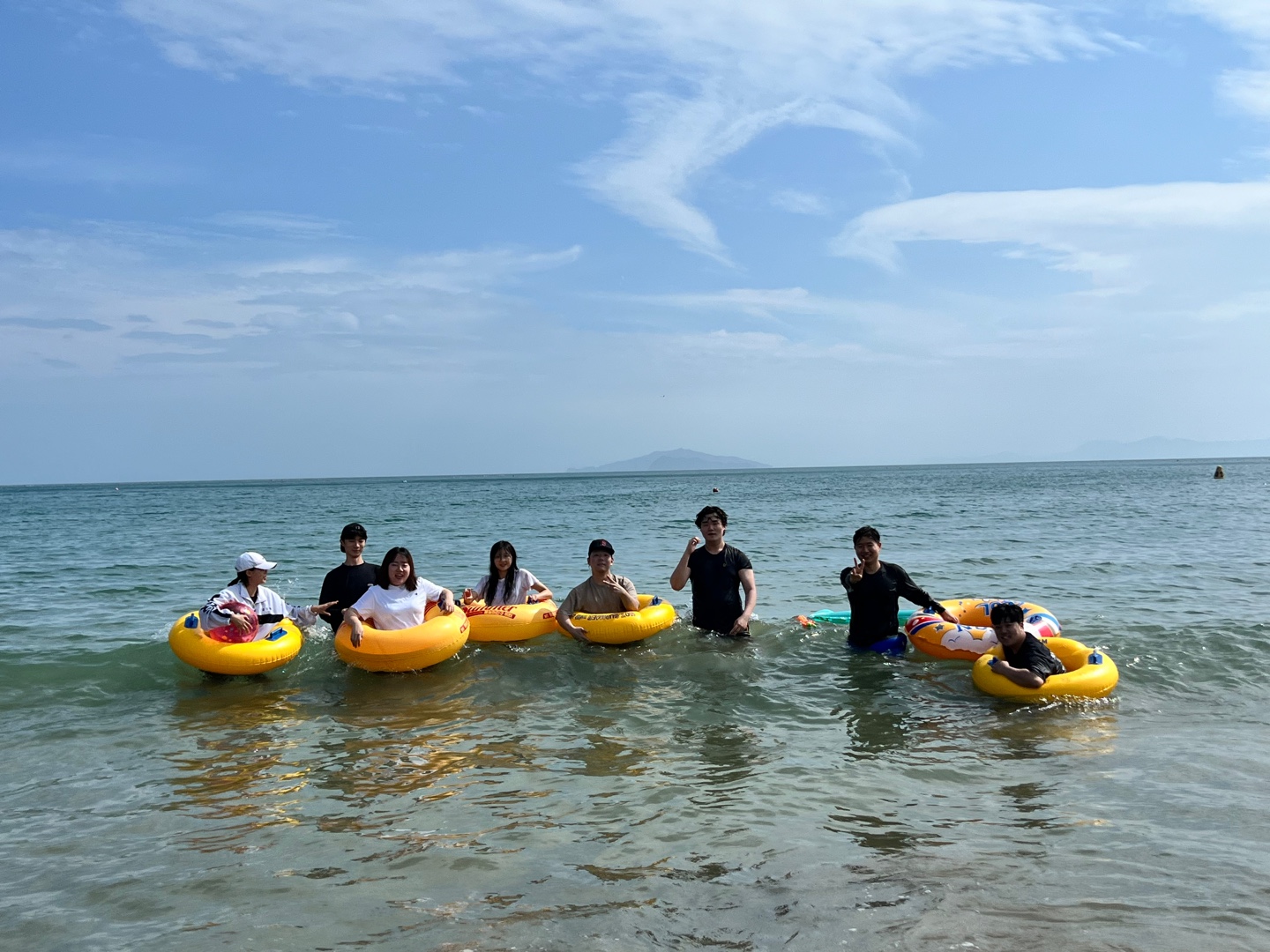
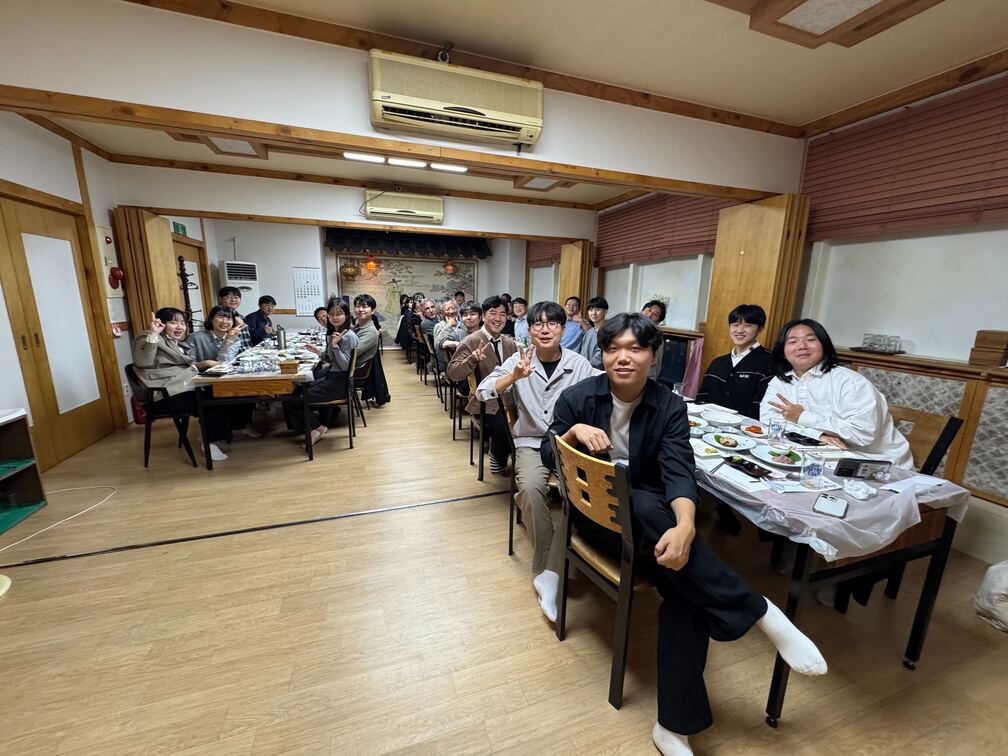

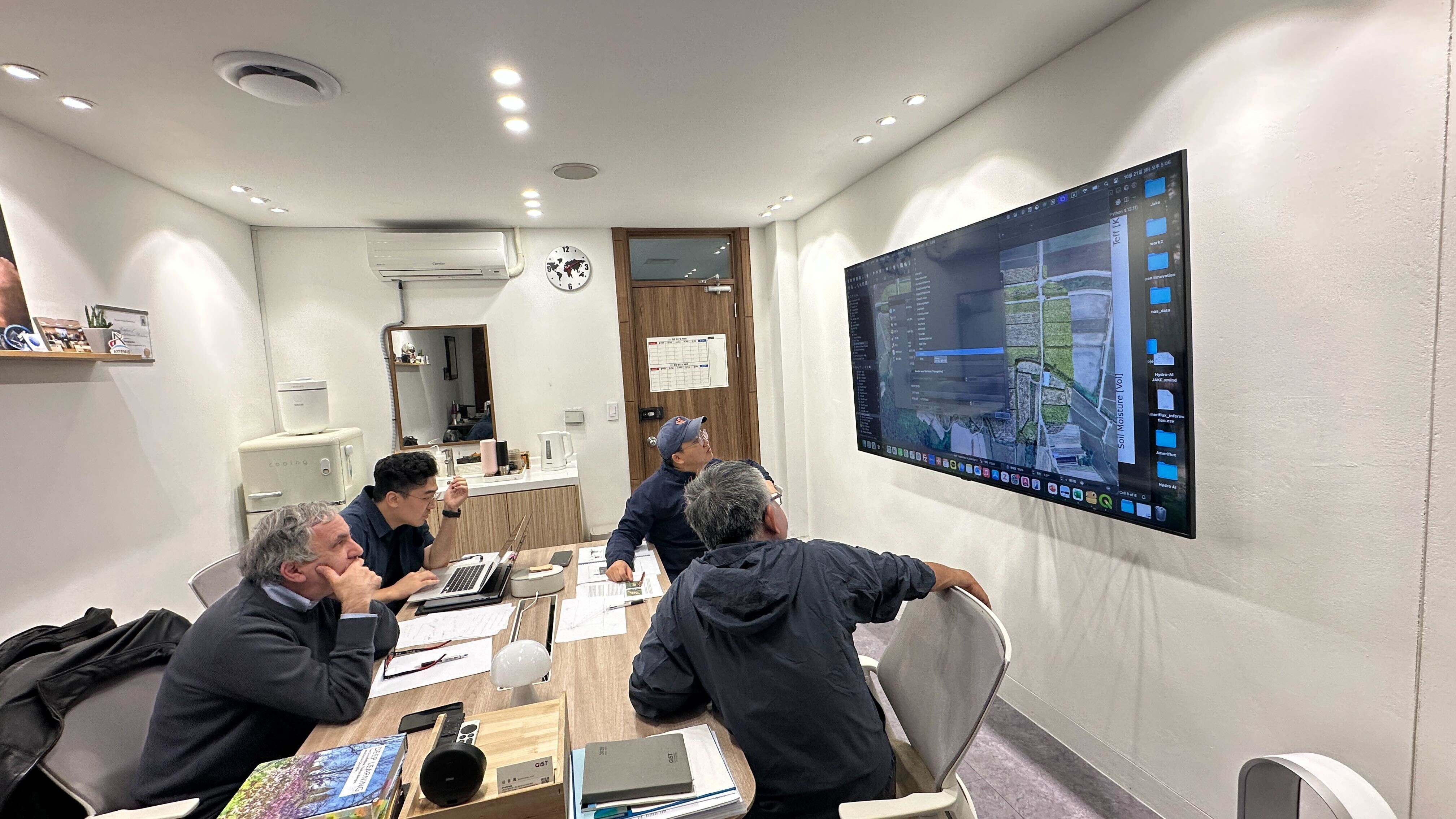

I am interested in hydrology, applications of Bayes’ theorem in machine learning, and global-scale water cycles. The overarching goal of my research is to provide accurate hydrological variables and solve the major challenges related to Earth system science that we will face in the coming decades. My work has practical applications for improving the quantity and quality of satellite- and model-based data to more accurately predict natural disasters and to provide a better understanding of the role played by hydrometeorological factors.
(2022) Ph.D. in Civil Engineering, University of Virginia, VA, USA (NASA and Bicentennial Fellowship)
(2021) M.S. in Data Science, University of Virginia, VA, USA (NASA Fellowship)
(2012) B.S. in Civil Engineering, Hanyang University, Seoul, South Korea
(2023 - present) Assistant Professor, School of Earth Sciences and Environmental Engineering, Gwangju Institute of Science and Technology (GIST)
(2022-2023) Postdoctoral Fellow, USDA, Hydrology and Remote Sensing Laboratory, MD, USA
(2019 - 2022) NASA Future Investigator
(2019) (Summer) Visiting Scholar, NASA, Hydrological Sciences Laboratory, MD, USA
(2018/19) (Summer) Visiting Scholar, USDA, Hydrology and Remote Sensing Laboratory, MD, USA
(Invited) Associate Editor, IEEE Transactions on Geoscience & Remote Sensing
(Present) Associate Editor, Vadose Zone Journal (link)
(Present) (IEEE/GRSS) IGARSS Scientific Committee
(Present) PI of the NASA SMAP satellite core validation site development in South Korea
(Present) American Geophysical Union (AGU) Remote Sensing Technical Committee (link)
Review Panel
(2025) NASA ROSES A.48/CESRA Review Panel
(2023) NOAA Climate Variability and Predictability Program
(2023) NASA ROSES A.43/CSDA New Vendor Onramp Evaluation
Reviewer Board
Advances in Space Research
Artificial Intelligence Review
Environmental Monitoring and Assessment
Environmental Research Letters
Geophysical Research Letters
IEEE Geoscience and Remote Sensing Magazine
IEEE Transactions on Geoscience and Remote Sensing
IEEE Geoscience and Remote Sensing Letters
IEEE Journal of Selected Topics in Applied Earth Observations and Remote Sensing
International Journal of Applied Earth Observation and Geoinformation
Journal of Geophysical Research-Biogeosciences
Journal of Meteorological Research
Journal of Hydrology
Radio Science
Remote Sensing of Environment
Remote Sensing Letter
Satellite Navigation
Science of the Total Environment
Scientific Report
Water Resources Research

Research Interests
1. Uncertainty of Soil Moisture
2. Land Data Assimilation
3. Deep Learning with Satellite Dataset
Publications
[1] S. Kim, H. Kim*, Y. Kwon and H. Nguyen, A Stand-Alone Framework for Predicting Spatiotemporal Errors in Satellite-Based Soil Moisture Using Tree-Based Models and Deep Neural Networks, GIScience & Remote Sensing (link)
[2] S. Kim, N. Myoung, S. Jun, and A. Go, “Neural network-based recognition of multiple nanobubbles in graphene”, Curr. Appl. Phys., 68, 44-50 (2024).
[3] S. Lee, J. Kang, S. Kim, J. Jeong, G. Moon, and H. Noh, "Magnetic-field enhanced modulation transfer spectroscopy: theory and experiment", Opt. Express, 29(21), 34770-34780 (2021).
Awards
[1] Korea Research Foundation Master’s Scholarship Recipient (2024-2025)
[2] 1st Place in 5-Minute Student Competition, Korean International Water Week (KIWW) (2025)
Conference Papers
[1] S. Kim, Y. Kwon, H. Kim*, Spatially Continuous Error Maps for Satellite-based Soil Moisture Data Using Machine Learning Approzach, KWRA, 2024
[2] S. Kim and H. Kim*, Developing Temporally Continuous Error Maps for Satellite-based Soil Moisture Data Using Deep Learning Approaches to Enhance Numerical Weather Prediction, COSPAR, 2024
[3] S. Kim, Y. Kwon, and H. Kim*, Enhancing Land Data Assimilation By Considering Spatio-Temporal Error Dynamics of Satellite-based Soil Moisture Data: Integrating TCA and Deep Learning for Accurate Uncertainty Estimation, AGU, 2024

Research Interests
1. Satellite-Based Soil Moisture Retrieval and Validation
2. Remote Sensing for Hydrology
3. Machine Learning and Deep Learning for Environmental Monitoring
Awards
[1] Academic Paper Award at the Domestic Conference of the Korean Society of Environmental Engineers (2023)
[2] President’s Award at GIST School of Earth and Environmental Engineering Olympiad (2023)
Conference Papers
[1] E. Choi et al., Elimination of Micropollutant Using Aniline-Derived Metal-Carbon Composite (Me-NC) in Catalytic Ozonation: Process Efficiency and Mechanistic Understanding, Korean Society of Environmental Engineers, Yeosu, Republic of Korea(2024)
[2] E. Choi et al., Elimination of Micropollutant Using Aniline-Derived Metal-Carbon Composite (MeNC) in Catalytic Ozonation: Process Efficiency and Mechanistic Understanding, Korean Society of Water & Wastewater, Daejeon, Republic of Korea (2024)
[3] E. Choi et al.,, Elimination of Micropollutant Using Aniline-Derived Metal-Carbon Composite (Me-N-C) in Catalytic Ozonation: Process Efficiency and Mechanistic Understanding, Korean Society of Environmental Engineers, Busan, Republic of Korea (2023)

Research Interests
1. Drone and Satellite Data Processing for Geospatial Analysis
2. Deep Learning and Artificial Intelligence for Environmental Monitoring and Slope Stability Assessment
3. Climate and Hydrological Monitoring Using Thermal Imaging and Hyperspectral Sensors
4. Integration of Field-Based Measurements with Remote Sensing and AI Models
Awards
[1] Excellence Award – 2023 Winter Big Data Bootcamp AWS DeepRacer Competition
[2] Participation Prize – Spatial Information AI Competition (2024)
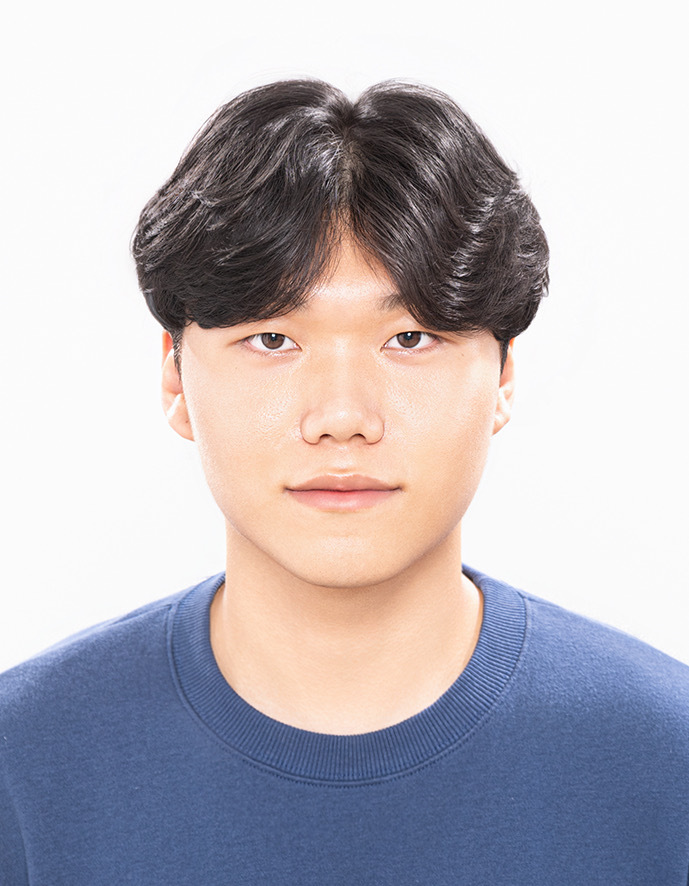
Research Interests
1. Developing models that combine satellite microwave observations with physical radiative transfer equations to improve soil moisture estimation.
2. Applying deep neural networks to integrate precipitation, river discharge, and remote sensing data for near real-time flood forecasting and flood extent mapping.
3. Leveraging recurrent neural networks to analyze long-term climate, vegetation, and soil datasets to improve drought onset detection and intensity assessment.
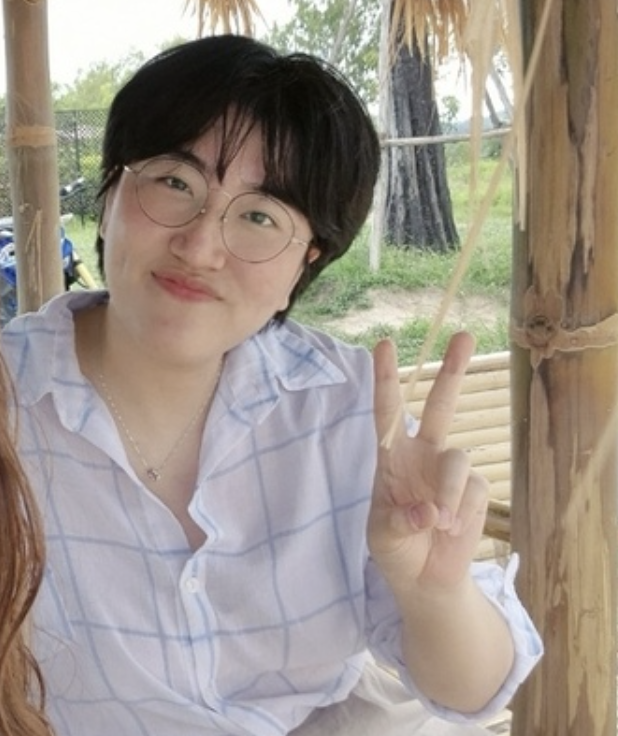
Research Interests
1. Multiscale feedback mechanisms in hydrologic and climate systems
2. Physics-based and Interpretable AI for micro-to-macro interactions in geophysical systems
3. Remote sensing-based analysis of soil moisture
Publications
[1] J. You, S. Kim, M. Suh, U. Huh, C. Lee, “Evaluation of Input Design Strategies for Deep Learning-Based Wall Shear Stress Prediction in Abdominal Aortic Aneurysms Using WSSNet”, BBE, in preparation
[2] S. Kim, B. Lim, M.S. Bessell, J. Kim, H. Sung, “The Sejong Open Cluster Survey (SOS). VII. A Photometric Study of the YoungOpen Cluster IC 1590", AJ, 162, 140 (2021)
Awards
[1] Excellent Poster Award at Conference of Korean Astronomical Society (2021)
Conference Papers
[1] S. Kim, et al., The Kinematic Properties of Young Stars in NGC 281, KAS, 2021
[2] S. Kim, et al., A Photometric Study of IC 1590, KAS, 2020
[3] S. Kim, et al., Proplyd Morphology via Photometric Analysis, KAS, 2017
Experiences
(Jan 2023 - Jun 2025) Bizdata Co., Ltd., AI Developer

Research Interests
1. Remote sensing of flood
2. Water resource prediction and management
3. Exploring the impact of urban and transportation system of water disaster
Conference Papers
[1] S. Lee and H. Kim*, Water Quality Trend Analysis using Landsat and Sentinel Series based on Machine Learning/Deep Learning Methods, KWRA, 2024
[2] S. Lee and H. Kim*, Estimation of Inland Water Quality Indicators using Satellite and Machine Learning, COSPAR, 2024
[3] S. Lee and H. Kim*, Development of Chlorophyll-ɑ Prediction Model for Inland Reservoirs Using Satellite and Land Surface Model: Applying Deep Learning Approach, AGU, 2024
Experiences
[1] (Sep 2022 - Feb 2023) Korea Railroad Research Institute, Research Assistant
[2] (Jan 2016 - Nov 2019) Ulleung County Office, Assistant Director

Research Interests
1. Satellite-Based Hydrological and Environmental Monitoring
2. Monitoring of Soil Moisture and Hydrological Changes under Climate Change
3. Satellite-Assisted Pollutant Transport Modeling
Conference Papers
-

Research Interests
1. Deep learning
2. Foundation Models
3. LoRA

Research Interests
1. Hydrology
2. Remote Sensing
3. In-situ network

Research Interests
1. Constructing satellite-based soil moisture core validation site (CVS) in Korea
2. In-situ soil moisture retrieval
3. Land surface model (LSM) and hydrological cycles
Conference Papers
[1] K. Park, S. Do, K. Kim, V. Lakshmi, and H. Kim*, Flood Detection in East Asia in the 2023 Monsoon Season with Satellite-based Earth Observations, AGU 2024
[2] K. Park, D. Kim, and H. Kim, Developing the First Long-Term Soil Moisture and Brightness Temperature Measurement Site in South Korea Using L-Band Radiometers and Drones, AGU 2024

Research Interests
1. Exploring snow dynamics and its implications for other hydrological cycles
2. Wildfire detection and prediction
3. Development of data fusion methods
Awards
[1] 3rd Place in 5-Minute Student Competition, Korean International Water Week (KIWW) (2025)
Experiences
[1] (Jun 2022 - May 2024) Korea Aerospace Research Institute, Department of Satellite Operation, Jeju Island, Republic of Korea
[2] (Oct 2021 - Mar 2022) Asian Disaster Preparedness Center, Bangkok, Thailand
[3] (Nov 2018 - Feb 2019) Space Science Laboratory on Campus, Yongin, Republic of Korea
Conference Papers
[1] 2024 N. Kwon, E. Cho, H. Kim, Impact of Altered Snow Patterns on Spring Wildfires in Korean Peninsula Using Reanalysis Data in a Warming Climate, AGU 2024

Research Interests
1. Use of Earth-observing Satellite Data for Drought Monitoring
2. Land-atmosphere Feedback Mechanisms and Their Role in Exacerbating Drought Conditions.
3. Examine Global Drought Trends and Characteristics.
Awards
[1] Asia Oceania Geosciences Society (AOGS) 2024 Best Student Poster Award winner
Conference Papers
[1] A. Bolatbekkyzy and H. Kim*, Comparative Analysis of the 2021-2022 Droughts in Kazakhstan, South Korea, and the USA using Remote Sensing and Reanalysis Data, 2024 Asia Oceania Geosciences Society (AOGS)
[2] A. Bolatbekkyzy, H. Nguyen, H. Kim*, Global-scale Satellite-based Agricultural Drought Monitoring from the Land Atmosphere Interaction Perspective, 2024 American Geophysical Union (AGU)
Exchange Program
Participating in an exchange program at Czech Technical University in Prague (February 2025 - June 2025).
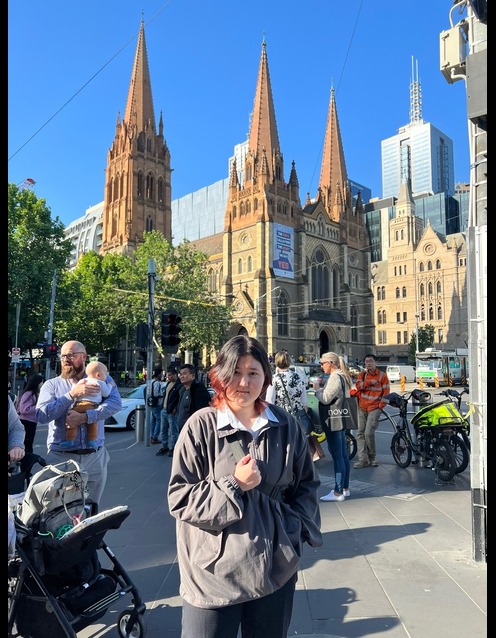
Research Interests
1. Digital Twin Earth
2. Soil Moisture
3. Climate Change

Research Interests
1. L-band microwave systems
2. Analysis of marine ecosystems using satellite data
3. Mathematical modeling of ecosystems
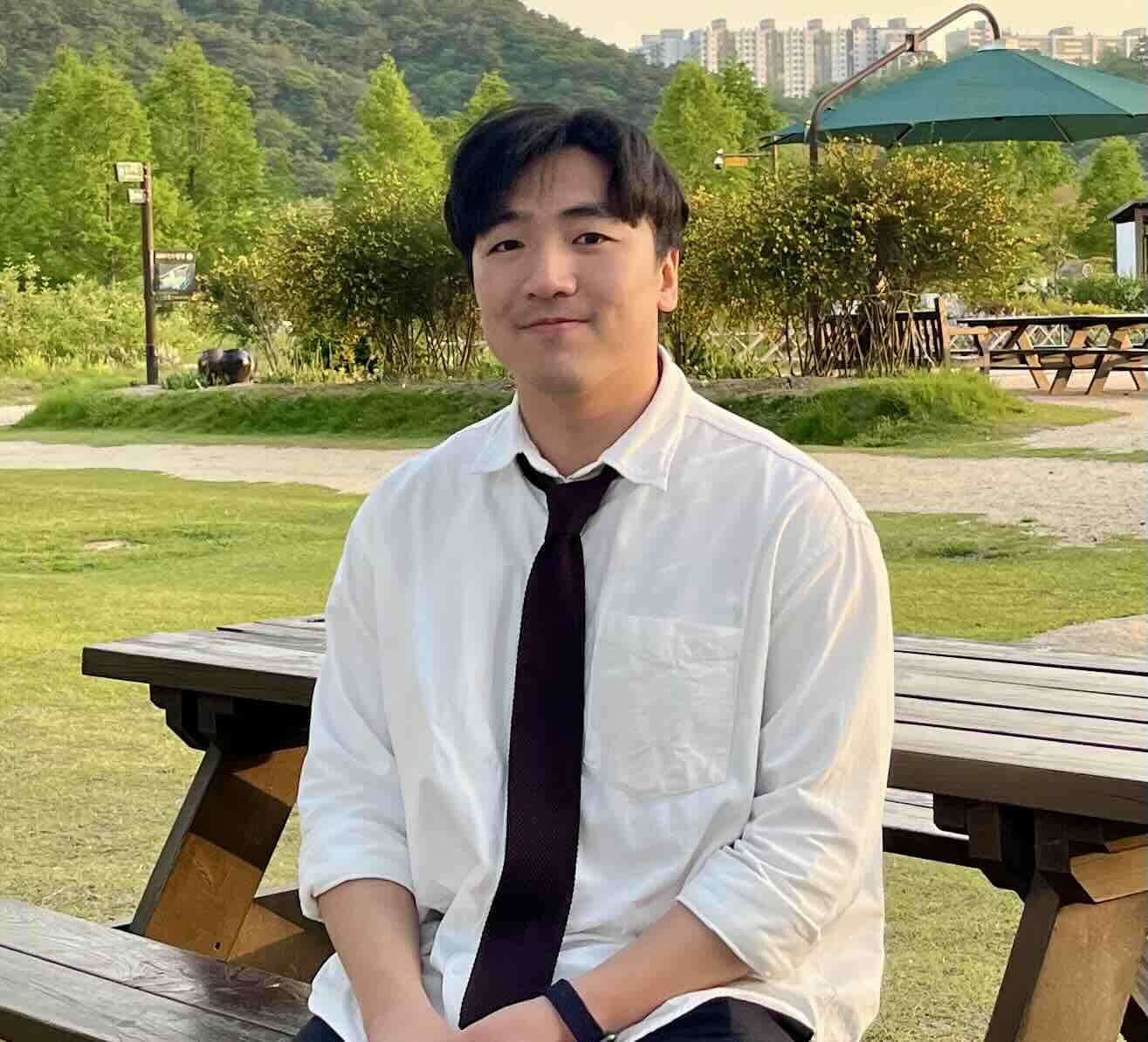
Holding a Ph.D. degree with over 6 years of combined Research and Development (R&D) experience in academia for hydrology, remote sensing, and climate applications, with a strong focus on the integration of AI and advanced geospatial data for ecohydrological studies.
Research Interests
1. Understanding ecohydrological processes of the Earth using remote sensing observations
2. Investigating the influence of soil moisture on the variability of land vegetation status
3. Retrieving geophysical parameters through radiative transfer modeling and deep learning
Publications (3 most recent)
[1] Jung, S., Kim, S., Jang, E., Lee, J., Han, D., & Im, J. Robust daily satellite sea surface salinity reconstruction using deep learning in low-salinity coastal regions. Marine Pollution Bulletin
[2] Lee, J., Im, J., Son, B., Cosio, E. G., & Salinas, N. (2024). Improved SMAP Soil Moisture Retrieval Using a Deep Neural Network-based Replacement of Radiative Transfer and Roughness Model. IEEE Transactions on Geoscience and Remote Sensing
[3] Lee, J., Jung, S., & Im, J. (2024). ASCAT2SMAP: image-to-image translation to obtain L-band-like soil moisture from C-band satellite data. IEEE Journal of Selected Topics in Applied Earth Observations and Remote Sensing
Conference Papers (3 most recent)
[1] Lee, J., Im, J., & Son, B. (2024). A Physics-Informed Neural Network-based Retrieval of L-band Tau-Omega Model Parameters for Improved Soil Moisture Retrieval. AGU Fall Meeting (Poster)
[2] Lee, J., Im, J., & Son, B. (2023). A Deep Learning-based Replacement of Tau-Omega Model for Improved Soil Moisture Retrieval. AGU Fall Meeting (Poster)
[3] Lee, J., Im, J., & Son, B. (2022). Improved SMAP Soil Moisture Retrieval using Deep Neural Network-based inversion of a Passive Microwave Radiative Transfer Model. AGU Fall Meeting (Poster)
(2025) Ph.D. in Environmental Science and Engineering, Ulsan National Institute of Science and Technology (UNIST), Republic of Korea
Grants and Awards
• (Sep. 2023) Ph.D. Fellowship Grant, National Research Foundation of South Korea
- Title: An Improved Parameterization of Passive Microwave Radiative Transfer Model using a Physics-Informed Neural Network
• (Nov. 2019) Excellent Paper Award, The Korean Association of Geographic Information Studies
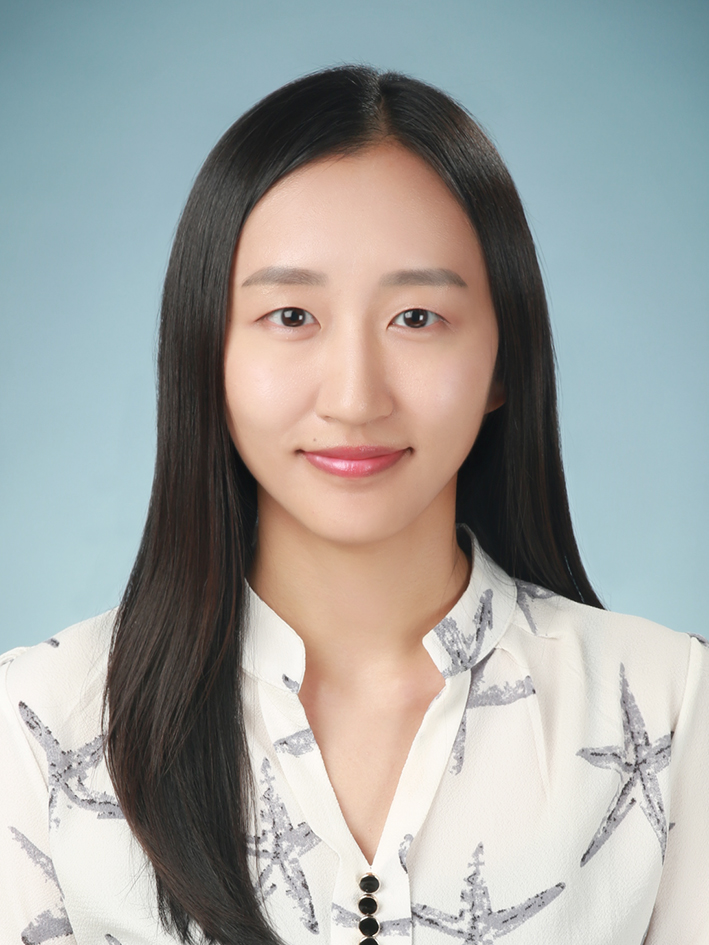
Holding a Ph.D. degree with nearly 9 years of research experience in academia, focusing on atmospheric science, data assimilation, and remote sensing for Earth system prediction. My expertise lies in integrating satellite observations (e.g., MODIS, GEMS, SMAP) with numerical weather prediction models (WRF-Chem, Noah LSM) through advanced ensemble-based data assimilation (MLEF) and deep learning methods for improved prediction of extreme climate events such as Asian dust storms.
Research Interests
1. Data assimilation for atmosphere–land–aerosol interactions
2. Hydrological and atmospheric remote sensing
3. Extreme climate event prediction (dust storms, droughts, land–atmosphere coupling)
Publications (3 most recent)
[1] Lee, E., Zupanski, M., Lim, S., & Park, S. K. (2025). Impact of assimilating GEMS aerosol optical depth on Asian dust storm prediction: Comparative assessment with MODIS observation. Asia-Pacific Journal of Atmospheric Sciences, 61(3), 23.
[2] Yoon, J. W., Lee, S., Lee, E., & Park, S. K. (2025). Evaluation of dust emission and land surface schemes in predicting a mega Asian dust storm over South Korea using WRF-Chem. Geoscientific Model Development, 18(7), 2303–2328.
[3] Yoon, J. W., Lee, E., & Park, S. K. (2024). Improving Asian dust storm prediction using WRF-Chem through combinational optimization of physical parameterization schemes. Atmospheric Environment, 326, 120461.
Conference Papers (3 most recent)
[1] “Impact of Soil Moisture Data Assimilation on Atmospheric Variables in the Coupled Atmosphere–Land Surface Data Assimilation System”, AOGS 2025 Annual Meeting, Singapore. [Oral]
[2] “Comparison of Observation Frequency Effects from GEMS and MODIS Satellite Data on Asian Dust Prediction”, AOGS 2025 Annual Meeting, Singapore. [Poster]
[3] “Thinning and Superobbing Test for Assimilating Satellite Aerosol Observations”, AOGS 2024 Annual Meeting, Pyeongchang, Republic of Korea. [Oral]
(2025) Ph.D. in Atmospheric Science and Engineering, Ewha Womans University, Republic of Korea
(2016) M.S. in Atmospheric Science and Engineering, Ewha Womans University, Republic of Korea
(2013) B.S. in Environmental Engineering, Ewha Womans University, Republic of Korea
2022/03 – 2022/08 | Visiting Researcher, Cooperative Institute for Research in the Atmosphere (CIRA), Colorado State University, USA
• Developed the interface of MLEF with WRF-Chem and created an observation operator for assimilating MODIS and GEMS aerosol optical depth.
(2022) Best Poster Award, Korean Meteorological Society

Holding a Ph.D. degree in Hydroclimatology and Data Science with over 9 years of research experience, including postdoctoral research at the Indian Institute of Science, my expertise lies in hydrology, water resources, climate modeling, and AI-driven disaster management. I specialize in developing adaptive machine learning and deep learning frameworks to improve prediction and decision-support systems for floods, droughts, and hydroclimatic extremes. My work integrates satellite observations, big data analytics, and hydrological models to enhance subseasonal-to-seasonal forecasting and optimize water resource management strategies across diverse river basins.
Research Interests
1. AI and machine learning applications in hydrology and climate systems
2. Data assimilation and downscaling of hydroclimatic parameters
3. Disaster risk reduction and subseasonal-to-seasonal (S2S) prediction
Publications (3 most recent)
[1] Budamala, V., Roy, T., & Bhowmik, R. D. (2025). A robust skill verification of hindcast decadal experiments on streamflow regimes using CMIP6 data. Journal of Hydrology, 650, 132525.
[2] Hussain, M. A., Budamala, V., & Bhowmik, R. D. (2025). Application of machine learning-based post-processing to improve crowd-sourced urban rainfall categorizations. Applied Computing and Geosciences, 100255.
[3] Thakur, C., Budamala, V., Kasiviswanathan, K., Teutschbein, C., & Soundharajan, B. S. (2025). Extreme gradient and boosting algorithm for improved bias-correction and downscaling of CMIP6 GCM data across Indian river basin. Journal of Hydrology: Regional Studies, 59, 102443.
Conference Papers (3 most recent)
[1] “Improving S2S forecast accuracy with adaptive machine learning approaches for Indian heatwaves”, AGU Fall Meeting 2024, Washington D.C., USA. [Oral]
[2] “Assessment of hydrological changes in Godavari River Basin under the impacts of El Niño”, IAHS Proceedings, 2024, Göttingen, Germany. [Oral]
[3] “Multi-temporal downscaling of streamflow for ungauged stations using a hybrid framework”, EGU General Assembly 2023, Vienna, Austria. [Poster]
(2022) Ph.D. in Hydroclimatology and Data Science, Vellore Institute of Technology, India
2024/11 – 2025/09 | Research Associate-III, LODESTAR Project, Indian Institute of Science, Bangalore, India
• Leading development of AI-integrated early warning systems for floods and droughts, managing a team of 25+ researchers across multiple institutes.
2024/09 – 2024/10 | Research Associate-III, cCauvery Project, Indian Institute of Science, Bangalore, India
• Conducted hydrological data collection and analysis for the Cauvery River Basin to support sustainable water management strategies.
2022/09 – 2024/08 | IoE-IISc Postdoctoral Researcher, Indian Institute of Science, Bangalore, India
• Developed AI/ML models for subseasonal-to-seasonal (S2S) forecasting, achieving 95% accuracy in predicting extreme hydrological events 4–6 weeks in advance.
• Led two major AI-driven projects and mentored Ph.D. and Master’s students, contributing to high-impact publications and international conference presentations.
2022/09 – 2023/09 | Visiting Project Consultant, Indian Institute of Technology Roorkee, India
• Developed and validated real-time simulation algorithms for integrated operation of Tehri Hydropower Complex.
2022/04 – 2022/08 | Research Associate, Indian Institute of Technology Roorkee, India
• Contributed to decision support system design and optimization for hydropower operations.
2018/09 – 2022/02 | Teaching Cum Research Assistant, Vellore Institute of Technology, India
• Delivered lectures, supervised labs, and guided student projects in civil engineering and computer science applications.
2016/10 – 2018/09 | Research Associate, Vellore Institute of Technology, India
• Supported hydrology and water resources research, including calibration of SWAT hydrological models.
2015/05 – 2016/05 | Design and Planning Engineer, Lakshya Design and Homes, India
• Managed planning, design, and construction activities with responsibility for coordination and project execution.
Achievements
(2024) International Travel Grant, CSIR, for AGU Fall Meeting, Washington D.C., USA
(2023) International Travel Grant, SERB, for EGU General Assembly, Vienna, Austria
(2022–2023) Institute of Eminence Fellowship, Indian Institute of Science (IISc), Bengaluru
(2021) Raman Research Award, Vellore Institute of Technology, India
(2015) Best Innovative Idea Award, Sri Padmavathi University, India

Holding a Ph.D. degree with a +9-year Research and Development (R&D) experience in academia and industry for hydrometeorology and climate sectors, focusing on applications of AI and high-quality geospatial remote sensing data specialized for these sectors.
Research Interests
1. Flash Drought Monitoring and Prediction with Deep Learning
2. Spaceborne GNSS-R and CYGNSS Soil Moisture
3. Deep Learning for Reconstructing Satellite Observations
Publications (3 most recent)
[1] H.H. Nguyen, H. Kim*, W. Crow, S. Yueh, W. Wagner, F. Lei, J.-P. Wigneron, A. Colliander, and F. Frappart. From theory to hydrological practice: Leveraging CYGNSS data over seven years for advanced soil moisture monitoring. Remote Sensing of Environment, 316, 114509 (2025).
[2] S. Kim, H. Kim*, Y. Kwon, and H.H Nguyen. A Stand-Alone Framework for Predicting Spatiotemporal Errors in Satellite-Based Soil Moisture Using Tree-Based Models and Deep Neural Networks. GIScience & Remote Sensing (2025)
[3] Z. Zhu, H.H. Nguyen, H. Kim*, and V. Lakshmi. Leveraging a Novel Straightforward Integration Approach for Independent CYGNSS Soil Moisture Retrieval across Vegetated Regions. Journal of Remote Sensing (2025).
Conference Papers (3 most recent)
[1] H.H. Nguyen, and H. Kim*.Leveraging the TCA Method and ML Model to Reconstruct High-Resolution Satellite Soil Moisture Dataset from the Land Surface Model. Korea Water Resources Association Conference (2024)
[2] H.H. Nguyen, A. Bolatbekkyzy, and H. Kim*. Characteristic Time of Groundwater Recharge as a Climate Indicator for Monitoring Flash Drought. AGU Fall Meeting (2024)
[3] A. Bolatbekkyzy, H.H. Nguyen, and H. Kim*. Global-scale Satellite-based Agricultural Drought Monitoring from the Land Atmosphere Interaction Perspective. AGU Fall Meeting (2024)
(2020) Ph.D. in Engineering, Sungkyunkwan University, Republic of Korea
(2014) B.Sc. in Civil Engineering, Water Resources University (ThuyLoi University), Vietnam
(Sept. 2021 - Jan. 2024) Senior Researcher, Sejong Rain Co., Ltd.
(Mar. 2020 - Aug. 2021) Postdoctoral Researcher, Sungkyunkwan University, Republic of Korea
Projects joined:
• Consultation for Improvement of Water Resources Management in Uzbekistan using Satellites System (International Cooperation between KARI and Uzbekistan government)
• Development of IoT Smart Rain Gauge System with AI-based Automated Quality Control
• Development of Integrated Satellite Rainfall Estimation System
• AI-based Real-time Monitoring and Early Warning System of Harmful Algal Blooms using Multispectral Satellite Images in Small Inland Waters
• 7th Mekong-Republic of Korea Cooperation Fund (MKCF) Project Proposal (Design of Low-Cost Smart Agriculture System Adapting to Mekong River Countries)

Research Interests:
Publications:
• Bakar S., Kim, H., Basara, J., Lakshmi, V. “Observational Analysis of Streamflow Response to Flash Drought Events in the Mississippi River Basin” Submitted to Weather and Climate Extremes (September 2024) (in revision)
• Bakar S., Kim, H., Basara, J., Lakshmi, V. “Investigating the vulnerability and resilience of different land cover types to flash drought: A case study in the Mississippi River Basin” Submitted to Journal of Environmental Management (September 2024) (in revision).
• Bakar, S., Kahler, D., Lakshmi, V. “Assessment of groundwater resources in the Sand River catchment, South Africa using hydrological modeling and catchment water balance approaches” Submitted to Journal of Environmental Management. (July 2024) (under review)
Kim KY, Scanlon T, Bakar S, Lakshmi V. Decoupling of Ecological and Hydrological Drought Conditions in the Limpopo River Basin Inferred from Groundwater Storage and NDVI Anomalies. Hydrology. 2023; 10(8):170. https://doi.org/10.3390/hydrology10080170
(2021 - current) Ph.D. Candidate, Civil and Environmental Engineering, Universit of Virginia

Hometown: Roanoke, Virginia, USA
Birthdate: Jan 18, 2022
Breed: Double Doodles - Breeding of Goldendoodles (Golden Retriever + Poodle) with Labradoodles (Labrador Retriever + Poodle)
Meeting with Dooly: Anyone who wants to go for a walk with Dooly or play with her, feel free to contact me. She loves human.
If you have a keen interest in the intersection of climate change and its impact on hydrological research fields, I encourage you to consider pursuing a Master's, PhD, or postdoctoral position. By delving deeper into this critical area of study, you can play an essential role in addressing the world's most pressing environmental challenges and help safeguard our water resources, ecosystems, and communities. Your dedication and expertise can significantly contribute to the development of sustainable solutions and innovative approaches to hydrological research. Embark on this exciting journey and become part of the passionate community of scientists working towards a more resilient and environmentally responsible future.
